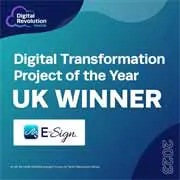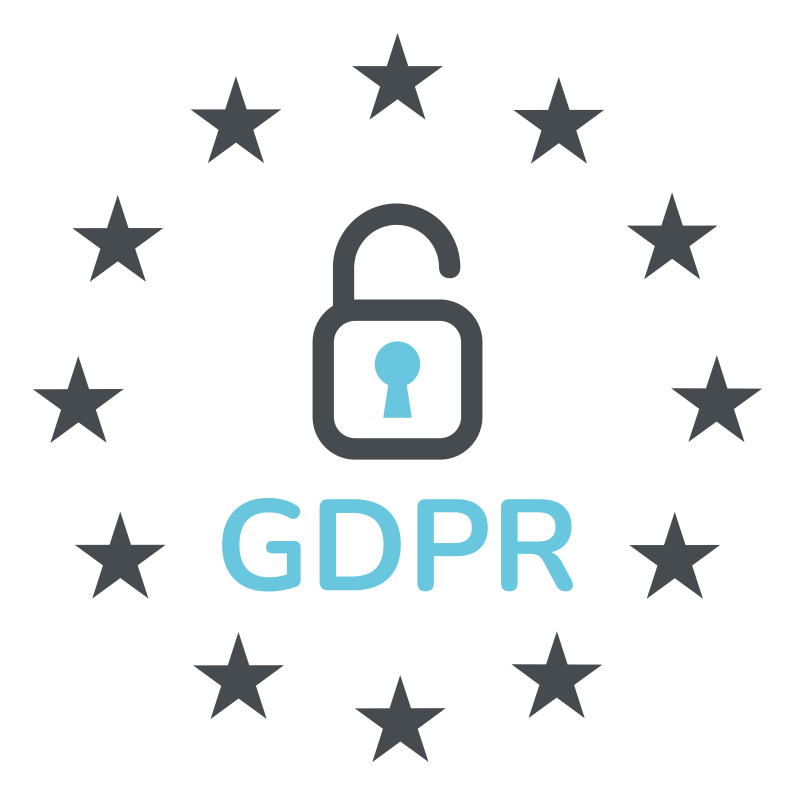How QeS can Facilitate Cross Border Transactions
Thomas Taylor
Managing Director
PUBLISHED
8th January, 2025
Qualified electronic signatures (QeS) are an invaluable tool for organisations operating in highly regulated sectors, enabling them to manage document transactions with enhanced security and compliance. With QeS, businesses can ensure that documents are transmitted and signed efficiently, maintaining their authenticity and legal validity throughout the process.
Cross-border transactions can come with significant challenges including trust, verification, and legal compliance, but by using qualified e-signatures organisations can overcome these challenges and ensure seamless document transactions in their workflows. This guide explores how QeS can facilitate seamless cross-border transactions while simplifying the signing process.
First, what is the EU’s stance on electronic signatures?
The Electronic Identification and Trust Services Regulation, also known as eIDAS, is a detailed set of laws and technical standards that provides an overall framework for providing electronic trust services in all EU member countries. It is important to note that following the UK’s exit from the EU, the country amended the eIDAS regulation, retaining most of the same standards within the regulation but adapting to better suit UK organisations.
The purpose of eIDAS is to increase confidence in using electronic transactions by implementing criteria that providers are required to follow to enable convenient and secure digital document processes. The eIDAS regulation defines three types of electronic signatures: simple, advanced, and qualified.

What is a qualified electronic signature?
Qualified electronic signatures (QeS) have similar requirements as advanced signatures, however, they go a step further to meet additional requirements set out by the eIDAS regulations. This distinguishes qualified from advanced and simple electronic signatures, as the criteria for QeS are more detailed and robust. They must be certified based on public keys issued using proper technological means. This means the identity verification process is multi-step, using both encrypted keys and two-factor authentication.
According to eIDAS, a qualified electronic signature (QeS) is defined as “an advanced e-signature generated using a qualified signature creation device (QSCD) and backed by a qualified certificate for electronic signatures.” The QSCD plays a critical role in ensuring the security and reliability of a qualified e-signature.
The second component of the QES definition specifies that the data used by the device must rely on a “qualified certificate for electronic signatures.” Such a certificate can only be issued by a Certificate Authority accredited as a Qualified Trust Service Provider (QTSP).
The eIDAS regulation requirements for qualified electronic signatures include:
- Ensure only one use of the signature is allowed
- Protect the confidentiality of the signature creation data
- Be suitably protected by the legitimate signer
- Shield the signature from forgery
- Not change the data in any way or stop it from being presented to the signer before their signature
- Create or manage data on behalf of the signer only when requested by the qualified trust provider
Key benefits of QeS in cross-border transactions
Qualified electronic signatures can enable cross-border transactions by ensuring businesses conduct their business securely, without the complications and risks associated with physical documents. QeS are legally valid and recognised across the European Union (EU) under the eIDAS regulation, providing a standardised framework for electronic signatures and trust services throughout all EU countries. This makes it easier for businesses to complete document transactions across borders as the same criteria for electronic signatures applies from eIDAS.
Therefore, businesses can have complete peace of mind that their cross-border transactions are secure and legally binding, with QeS holding the same weight as there would be on a handwritten signature. Below is a summary of the benefits of QeS in these types of transactions:
- Legal recognition – qualified e-signatures are the only type of electronic signature to have the same legal standing as handwritten signatures, allowing businesses to carry out fully valid and evidence-backed transactions digitally.
- Cross-border recognition – qualified signatures that are issued in one EU member state are recognised in all other member states according to eIDAS.
- Enhanced security – QeS and other trust services provide a higher level of security and protection during digital document transactions, making them the ideal solution for businesses operating between borders.
- Simplified compliance – the eIDAS regulation simplifies digital document transactions and helps businesses maintain global compliance with electronic signatures, allowing them to adopt a qualified signature solution in one EU country that can be used with equal security and legal assurance in another.
- Speed up business – organisations can accelerate completing transactions across borders by using QeS, reducing the risk of delays and obstacles caused by sending physical documents.
- Cost efficiency – eliminating the need for physical documents can save businesses a significant amount of money in cross-border transactions, especially in printing, ink, and postage expenses.
Use cases of QeS in cross-border contexts
Qualified e-signatures can have several use cases in cross-border transactions that benefit both the document sender and signer, these include:
- Contract signing between multinational parties.
- Approval of international trade documents such as invoices, shipping manifests etc.
- Ensuring authenticity in financial transactions and cross-border banking.
- Supplier agreements: QeS can be used to simplify the process of managing relationships with suppliers and partners across different jurisdictions.
- Administrative procedures: QeS can facilitate admin processes across borders such as tax declarations and requests for personal documents like birth certificates.
Challenges and considerations
Infrastructure readiness
Traditionally, businesses looking to complete cross-border transactions would have dealt with long processes and delays using physical documents. QeS offers a beneficial solution but for many organisations, there are some challenges and considerations to implementing qualified signatures for their cross-border transactions. For example, just because the region your business is located in has the appropriate infrastructure readiness and wide adoption of QeS does not mean that the country your document recipient is based in will be at the same level of preparedness. Therefore, it may be challenging initially to finalise transactions with recipients in other regions where the technology is not as widely used.
Integration with existing workflows
Another consideration or challenge when using QeS is integrating them with existing workflows in your business. Depending on multiple factors including the systems you have in place, your chosen QeS provider etc, it might be difficult to integrate qualified e-signatures into your document processes. However, by using a leading provider like E-Sign, which can integrate with many existing platforms, as well as discuss other custom integrations, you can feel assured that QeS can become an integral part of your workflow, allowing your business to easily carry out secure transactions with any relevant recipient, including those located across borders.
Data privacy and jurisdiction
Businesses may also be hesitant to utilise QeS for cross-border transactions due to concerns regarding data privacy and jurisdiction. QeS are most commonly used by organisations that operate in highly regulated industries that handle sensitive and valuable information in their documents. Therefore, data privacy is essential during these transactions, especially when they are cross-border as the risks seem greater and less in control of the sender.
However, QeS are the most secure type of electronic signature with robust security and identity verification measures required by eIDAS to ensure all digital documents signed with a QeS are protected and their authenticity maintained. Additionally, concerns around jurisdiction can be easily addressed as the eIDAS regulation applies to all countries in the EU. Following the UK leaving the EU, it adopted its own form of the eIDAS regulation which maintained many of the same elements from the existing version, and the UK does accept electronic signatures on documents that adhere to the EU eIDAS regulation.

The future of QeS in global business
As technology continues to develop, the adoption of QeS and other trust services is likely to increase significantly as it can support businesses and individuals with crucial document transactions in a simple yet secure way. If we consider blockchain and AI as two examples of technologies that are rising in prominence, they have the potential to enhance the use of QeS in several key ways.
Security and fraud prevention
The nature of blockchain technology allows it to provide a decentralised and immutable ledger for verifying qualified signatures and maintaining the integrity of signed documents. Therefore the risk of certificate authorities being compromised is removed. Additionally, AI can strengthen fraud detection by analysing patterns in signature creation and use. This means it could identify anomalies in document workflows or user behaviour that could point to fraudulent activity.
Streamlined identity verification
Blockchain-based identity systems can be integrated with QeS to provide seamless and secure verification of signers. These systems can also give individuals the ability to control their own identity credentials, which ties in with building digital trust through the introduction of eIDAS 2.0 and digital wallets. QeS will play an important role in supporting these new developments in digital identity technology and management.
Improved usability and accessibility
The integration of AI with QeS opens up vast opportunities to enhance usability and accessibility in document transactions. For instance, AI can streamline the creation and management of QeS by leveraging natural language processing and automated workflows. Users might simply give voice commands to an AI assistant to prepare, sign, and validate documents effortlessly. Additionally, blockchain-powered smart contracts can automate and enforce agreements tied to qualified signatures, minimising manual tasks and establishing greater trust in automated document processing.
Conclusion
QeS can transform cross-border transactions in multiple important ways including establishing legal, cross-border recognition of qualified e-signatures and simplifying eIDAS compliance for businesses that have agreements and partnerships with businesses based in other regions. If you’re looking for a qualified digital signature solution to ensure seamless international transactions in your organisation, E-Sign can help.
Contact us today to discuss your e-signature and document requirements with our digital transformation team. You can also get started with E-Sign by registering for our 14-day free trial, allowing you to explore the platform for yourself and see how it could work for your business needs.
 Facebook
Facebook
 X (Twitter)
X (Twitter)
 LinkedIn
LinkedIn











